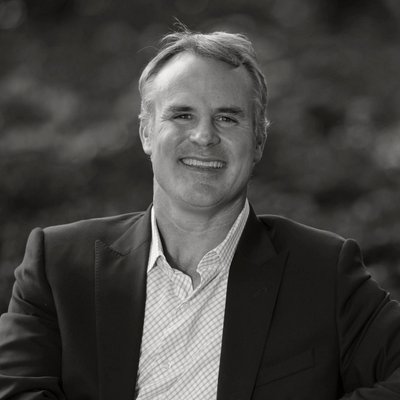openness
See the following -
SPARC 2014 Open Access Meeting Speakers Accounced
SPARC (the Scholarly Publishing and Academic Resources Coalition) is pleased to announce a strong slate of speakers for its upcoming Open Access Meeting, to be held March 3 and 4 in Kansas City, MO. Dr. Philip Bourne, the newly-appointed Associate Director for Data Science at the National Institutes of Health, will deliver the opening keynote address. Read More »
- Login to post comments
Taking Lessons from the Open Source Movement & Craft Brewers, Doctor Revolutionizing Healthcare
 Pioneering doctors are showing the way to a much higher performing system as I highlighted in Doctors' Declaration of Independence. They understand that every example of great societal movements to our toughest challenges have come from the bottom up. The fundamental structure of politics is to cement the status quo. If the status quo was performing well that would be OK, but it's clearly failing miserably. In fact, Chapter 1 of my new book is "America Has Gone to War for Less" (link to free copy of the book below) referring to the collateral damage from this wildly underperforming status quo. Fortunately, doctors are collaborating to change this such as the Direct Primary Care conference starting today in Orlando.
Pioneering doctors are showing the way to a much higher performing system as I highlighted in Doctors' Declaration of Independence. They understand that every example of great societal movements to our toughest challenges have come from the bottom up. The fundamental structure of politics is to cement the status quo. If the status quo was performing well that would be OK, but it's clearly failing miserably. In fact, Chapter 1 of my new book is "America Has Gone to War for Less" (link to free copy of the book below) referring to the collateral damage from this wildly underperforming status quo. Fortunately, doctors are collaborating to change this such as the Direct Primary Care conference starting today in Orlando.
- Login to post comments
The Current State of Open Data in the US Government
 In this article I will discuss the importance of open data in government, the current state of open data in government, and what we need to do to implement true open data. When I read an article on the Center for Data Innovation site, Congress Is Stepping Up to Protect Open Data, I was struck by two feelings: elation and surprise... The article links to a 2013 McKinsey report, Open data: Unlocking innovation and performance with liquid information, that says the national open data initiative of "open by default" represents real economic and transparency value for the public. The report points out that there is no assurance that open data will survive the end of the current administration...
In this article I will discuss the importance of open data in government, the current state of open data in government, and what we need to do to implement true open data. When I read an article on the Center for Data Innovation site, Congress Is Stepping Up to Protect Open Data, I was struck by two feelings: elation and surprise... The article links to a 2013 McKinsey report, Open data: Unlocking innovation and performance with liquid information, that says the national open data initiative of "open by default" represents real economic and transparency value for the public. The report points out that there is no assurance that open data will survive the end of the current administration...
- Login to post comments
The US Government’s Digital Strategy: The New Benchmark and Some Lessons
The White House recently launched its new roadmap for digital government. This included the publication of Digital Government: Building a 21st Century Platform to Better Serve the American People (PDF version), the issuing of a Presidential directive and the announcement of White House Innovation Fellows.
- Login to post comments
The Web Is in Danger, Copyright Reform Can Break the Internet
Basic copyright laws and enforcements have been in effect for hundreds of years.
Let’s go back in the history: First Industrial Revolution was based on water and steam power to mechanize production. The second was all about electricity which helped create mass production. The third, connected electronics and information technology to automate production. Now we live in “Fourth Industrial Revolution” which we also call the digital revolution...
- Login to post comments
Welcome To The Age Of Open-ish Technology
From Twitter's API and the Android OS, we live in an age when private companies reap the benefits of some openness while maintaining ultimate control. Read More »
- Login to post comments
What Can You do with Open Data?
 Play a word association game and the word "open" will almost surely be followed by "source." And open source is certainly an important force for preserving user freedoms and access to computing. However, code isn't the only form of openness that's important. Open data has been discussed for at least a decade. At the OSCON conference in 2007, Tim O'Reilly kicked off a bit of a ruckus when he suggested that open data might actually be more important than open code. Open data in this context mostly referred to the ability to export the user-created "Web 2.0" data, which was becoming important at that time. Tim Bray, then at Sun Microsystems, highlighted the issue when he wrote...
Play a word association game and the word "open" will almost surely be followed by "source." And open source is certainly an important force for preserving user freedoms and access to computing. However, code isn't the only form of openness that's important. Open data has been discussed for at least a decade. At the OSCON conference in 2007, Tim O'Reilly kicked off a bit of a ruckus when he suggested that open data might actually be more important than open code. Open data in this context mostly referred to the ability to export the user-created "Web 2.0" data, which was becoming important at that time. Tim Bray, then at Sun Microsystems, highlighted the issue when he wrote...
- Login to post comments
What Does it Mean to Have an Open Mindset?
 Successful companies are those that grow and expand. But bigger companies often need more managers. Excessive layers of management can instill cumbersome bureaucracy in a company, and bureaucracy can become a significant problem for companies when it can causes wasteful resource allocation, decreases productivity, and decelerates innovation. We can observe that open thinking can challenge or overcome potential problems of bureaucracy. Even if your company isn't a software company, it's still possible to adopt the mindset prevalent in free and open source software communities and instill openness within your company's culture...
Successful companies are those that grow and expand. But bigger companies often need more managers. Excessive layers of management can instill cumbersome bureaucracy in a company, and bureaucracy can become a significant problem for companies when it can causes wasteful resource allocation, decreases productivity, and decelerates innovation. We can observe that open thinking can challenge or overcome potential problems of bureaucracy. Even if your company isn't a software company, it's still possible to adopt the mindset prevalent in free and open source software communities and instill openness within your company's culture...
- Login to post comments
What the History of Open Source Teaches Us About Strategic Advantage
 The free software movement started like many other movements: A group of bright, spirited people felt controlled by a greater power and rose up and took matters into their own hands. It's not that different from the American Revolution. The colonists were tired of being controlled by Great Britain, so they declared their independence and started building their own system of government and military, and creating their own cultures. The revolutionaries' methods were disorganized and improvised, but they ultimately proved to be effective. Same goes for the software revolutionaries...
The free software movement started like many other movements: A group of bright, spirited people felt controlled by a greater power and rose up and took matters into their own hands. It's not that different from the American Revolution. The colonists were tired of being controlled by Great Britain, so they declared their independence and started building their own system of government and military, and creating their own cultures. The revolutionaries' methods were disorganized and improvised, but they ultimately proved to be effective. Same goes for the software revolutionaries...
- Login to post comments
What We (Think We) Know about Meritocracies
 "Meritocracy," writes Christopher Hayes in his 2012 book Twilight of the Elites, "represents a rare point of consensus in our increasingly polarized politics. It undergirds our debates, but is never itself the subject of them, because belief in it is so widely shared." Meritocratic thinking, in other words, is prevalent today; thinking rigorously about meritocracy, however, is much more rare. That kind of unspoken consensus—however tenuous and fraught in practice—makes tracing and tracking something called "meritocracy" all the more important. And indeed, interest in meritocracy as an explicit object of analysis and debate is intensifying, particularly in discussions examining open-style organizational designs and leadership practices...
"Meritocracy," writes Christopher Hayes in his 2012 book Twilight of the Elites, "represents a rare point of consensus in our increasingly polarized politics. It undergirds our debates, but is never itself the subject of them, because belief in it is so widely shared." Meritocratic thinking, in other words, is prevalent today; thinking rigorously about meritocracy, however, is much more rare. That kind of unspoken consensus—however tenuous and fraught in practice—makes tracing and tracking something called "meritocracy" all the more important. And indeed, interest in meritocracy as an explicit object of analysis and debate is intensifying, particularly in discussions examining open-style organizational designs and leadership practices...
- Login to post comments
When the Hacker Ethic Meets Old Ideas About Brand
 Open organizations apply principles from open source software development more broadly. Existing organizations find the open approach appealing because it promises gains in productivity and efficiency—but openness may have farther-reaching consequences than we anticipate or intend. One influential set of open principles comes from Steven Levy's book about the early history of the computing revolution, Hackers. Levy lays out what he calls "the Hacker Ethic," and it begins with "the Hands-On Imperative"...
Open organizations apply principles from open source software development more broadly. Existing organizations find the open approach appealing because it promises gains in productivity and efficiency—but openness may have farther-reaching consequences than we anticipate or intend. One influential set of open principles comes from Steven Levy's book about the early history of the computing revolution, Hackers. Levy lays out what he calls "the Hacker Ethic," and it begins with "the Hands-On Imperative"...
- Login to post comments
Why Open Drug Discovery Needs Four Simple Rules For Licensing Data And Models
As we see a future of increased database integration, the licensing of the data may be a hurdle that hampers progress and usability. We have formulated four rules for licensing data for open drug discovery, which we propose as a starting point for consideration by databases and for their ultimate adoption. Read More »
- Login to post comments
Will Trump Administration Back Rules Treating Health Insurance as a Utility, Not Luxury?
On June 14, 2016 a Federal Court ruled that broadband internet is as essential to American as phones, electricity, water and sewer systems and should be available to all Americans as a utility, rather than a luxury that doesn’t need close government supervision. In the United States, public utilities are often natural monopolies because the infrastructure required producing and delivering a product such as electricity or water is very expensive to build and maintain. As a result, they are often government monopolies, or if privately owned, the sectors are specially regulated by a public utilities commission which severely limits the profits for the private utility company and the associated costs passed on to consumers of that utility...
- Login to post comments
Your Team's Differentiator Isn't Its Tech
 In 2016, I launched Open Innovation Labs, a place where people seeking to leverage the principles of openness can work with a seasoned team to build innovative software that solves their most pressing business problems. It has been an exciting and daunting undertaking. Today, Open Innovation Labs imparts knowledge and best practices that emerge from the world's most successful open source projects, and we provide a residency-style experience that immerses teams in those practices. We generally partner with companies looking to do two things: Either they want to move quickly and be disruptive, or they see disruption as an existential threat and seek to adapt their behaviors to facilitate a more rapid pace of change...
In 2016, I launched Open Innovation Labs, a place where people seeking to leverage the principles of openness can work with a seasoned team to build innovative software that solves their most pressing business problems. It has been an exciting and daunting undertaking. Today, Open Innovation Labs imparts knowledge and best practices that emerge from the world's most successful open source projects, and we provide a residency-style experience that immerses teams in those practices. We generally partner with companies looking to do two things: Either they want to move quickly and be disruptive, or they see disruption as an existential threat and seek to adapt their behaviors to facilitate a more rapid pace of change...
- Login to post comments
- previous page
- 1
- 2
- 3